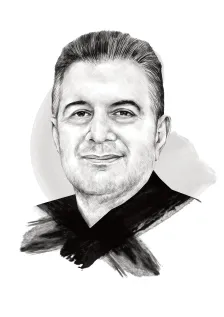Few Lebanese will forget the day of 4 August 2020, when an enormous store of ammonium nitrate caused a huge explosion in the Port of Beirut.
It killed hundreds, injured thousands, displaced hundreds of thousands, and devastated the capital. The repair bill for a country in the grip of an acute economic crisis was estimated at a staggering $15bn. Little wonder it prompted a wave of migration.
Known to a few, Warehouse 12 housed a colossal cargo of 2,750 tonnes of ammonium nitrate, which is used in fertilisers and explosives. The cargo, which was stored without proper safety measures in-place, had been confiscated six years earlier by Lebanese authorities from a ship they had deemed unseaworthy in 2014.
The blast killed 218 people, injured 7,000, and left 300,000 homeless. It was so powerful that it was felt in Turkey, Syria, Palestine, Jordan, Israel, and eastern Europe, and heard more than 240km away in Cyprus.
Several neighbourhoods of Beirut were decimated. Shortly after, thousands of families upped and left, to start new lives elsewhere. So many went in such a short space of time, it felt completely unprecedented.
A sudden change
The migration gave the date of the blast an added feeling of significance, especially for those of my generation who lament what has happened to Lebanon this past half-century, a period scattered with wars, defeats, and catastrophe.
False victories have followed big promises, including pledges to liberate Jerusalem. All have amounted to lies. We have only had overwhelming and ongoing losses to burden five generations with endless calamity.




